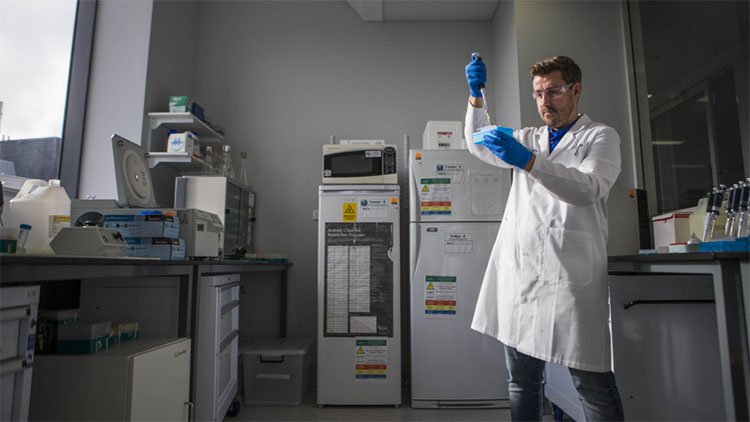Self-detectable infectious disease kits will save millions of lives
According to a reporter in Sydney, a scientist in Australia has successfully developed a simple remote health self-test kit.
This device helps detect early infectious diseases such as malaria, has the ability to save millions of lives and minimize the impact of disease in areas prone to infection.
Kits include blood sampling rods, urine or saliva, water and smart phones.
After adding water to these samples, users only need to use a small handheld device (such as a smartphone) to detect the disease in the sample, if any, because the water creates a microorganism that produces the Biological reactions can detect pathogenic parasites, such as malaria.

Dr. Lee Alissandratos.(Source: ANU).
The author of the tool, Dr. Lee Alissandratos of the School of Chemical Studies at the Australian National University (ANU), said with this cheap and easy to use tool, anyone anywhere, counting In remote areas, you can do your own tests to detect your disease without sending blood or urine samples to hospitals or laboratories that are expensive and even impossible. for many areas.
Dr. Lee developed the kit because of the importance of early detection of pathogenic parasites in the global war to control and eradicate some of the fastest-spreading infectious diseases in the world. now on.
In many cases, at first many illnesses often do not have any symptoms, but when symptoms develop, it is also when the disease has spread.
Dr. Lee believes this kit is useful for developing countries, where many deadly infectious diseases exist, such as malaria.
Acting Deputy Principal ANU Mike Calford identified Dr. Lee's work to save millions of lives around the world and help reduce the impact in areas of disease outbreaks.
Bill and Melinda Charity Foundation has funded US $ 100,000 for the full development of the above-mentioned infectious disease self-discovery tool within the next 18 months.
- Wash your hands, act small to save many lives
- Alzheimer's disease and Parkinson's are not contagious
- There is a handheld device to quickly detect infectious disease virus
- ADB helps Vietnam control infectious diseases
- The 14-year-old boy refused 30 million USD
- Obesity is an infectious disease
- High alert for hand, foot and mouth disease
- 70% of emerging infectious diseases are caused by animal transmission
- The development of Alzheimer's as a contagious disease
- The best ways to prevent the flu
- Special test system for diagnosing infectious diseases
- Rice varieties like miracles save millions of lives
 Green tea cleans teeth better than mouthwash?
Green tea cleans teeth better than mouthwash? Death kiss: This is why you should not let anyone kiss your baby's lips
Death kiss: This is why you should not let anyone kiss your baby's lips What is salmonellosis?
What is salmonellosis? Caution should be exercised when using aloe vera through eating and drinking
Caution should be exercised when using aloe vera through eating and drinking